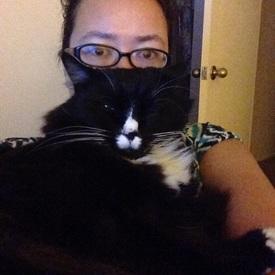Body Fat vs Scale Weight

ASaxe23
Posts: 158 Member
Hullo all... Over the past year 1/2 I decided to drop weight. I have done some good things and some bad things (in the beginning. Currently I'm going crazy. I'm trying to focus on body fat vs. my scale weight but I often wonder how accurate body fat measurements are. Is there anything that can be used at home to measure body fat that's going to be accurate, beyond calipers I think I'd screw that up? My scale and I have a love hate relationship as one dinner can have me gaining 4lb that won't leave for almost a week....and I know I didn't eat that much!! I'm really trying to focus on getting a toned athletic figure vs, being skinny. I want to to fit, and eventually compete in some figure competitions, but I need a way to gauge my progress that doesn't rely on such...unreliable things..I hope this makes sense. BTW according the the body fat measurements I have done I've gone from 41% l to 29%.
0
Replies
-
I personally am taking the tack of just doing what I know is right: eating within calories, sticking to my lifting schedule, remembering NEAT (which for me means, don't sit if you could stand, don't drive if you could walk, but don't kill yourself for either, and remember to get up from the computer once in a while). And talking about how I should probably do some cardio and then not actually doing any.
You should make progress that way - and you'll see it in the mirror and in progress pictures. The actual measurement part is less frequent than I think a lot of people like though.0 -
Man, I really couldn't have said it any better than Tameko. Truthfully, I don't track body fat percentage on myself or any of my clients. I have a handheld BIA device right there in plain site in my gym and none of my clients are even interested. They don't care what the scale or the body fat analyzer says... as long as what the reflection in the mirror is reading is on point, they're happy. As am I.
I've found reflection and pictures tell more of a story than anything else.0 -
erm...thanks...I guess I feel better having something to go one besides just progress photos...I like to know I'm going in the right direction. I dunno...it's helpful!0
-
erm...thanks...I guess I feel better having something to go one besides just progress photos...I like to know I'm going in the right direction. I dunno...it's helpful!
If you are eating according to your goals 90% of the time, and you are hitting your activity targets (for me, for example, lifting 4x a week on schedule and meeting my goals for weight and reps), then that is what you should consider the right direction.
The thing is, once you are no longer actually FAT - like once you are more or less fighting off vanity layers, your weight and measurements start to fluctuate like NUTS. At least, mine do. My scale weight can go absolutely anywhere in a 5 lb range, and I can gain as much as an inch on my waist from bloat. When you're at a reasonable weight for your body (which for women is ALWAYS a higher fat % than we might want to see) the rate that you see body fat changes is so minimal that I don't think there's a great way to take regular measurements. And those BIA things are supposedly hyper susceptible to all kinds of confounds like hydration levels - so unless you are always super disciplined and regular, always take in the same amount of water, salt, perform exactly the same activities from day to day, etc, I don't know that you will see changes there with any kind of regularity.
I used to try and track stuff, but it ends up just making me feel frustrated (or happy, and then I slack off a little), and in the end it doesn't really matter because, provided you've got a reasonable plan for eating and exercise, that you are comfortable with and can stick to long term, you don't have a ton of adjustments to make. I've started long term tracking - like 4-6 weeks off the scale, then I weigh myself for a week and make sure I'm at least not seeing steady gains.
The thing I track now is fitness improvements - if you're a runner or cyclist or something, you start pushing yourself for better times or longer distances. If you're more lifting focused like me, you focus on seeing progress there. A diet plan that fits your goals and improving in whatever fitness measurements you're interested in should get you the body you want.0 -
Again, great post. Form follows function. If you're focusing on the performance (function) improvements and pairing it with a reasonable diet, your physique (form) will follow suit. Over the years, I've found that the people who obsess over the numbers (weight, body fat percentage, or whatever) tend to have the least healthy relationships with their bodies and the process. Of course there can be exceptions... but that has definitely been the general theme in my experience.0
This discussion has been closed.

